The Bouchet Society is a network of preeminent scholars who exemplify academic and personal excellence, foster environments of support, and serve as examples of scholarship, leadership, character, service, and advocacy for students who have been traditionally underrepresented in the academy.
In the spirit of Bouchet’s commitment to these ideals, the 2023 Bouchet inductees representing the Rackham Graduate School’s society chapter have all demonstrated significant achievement in these five areas.
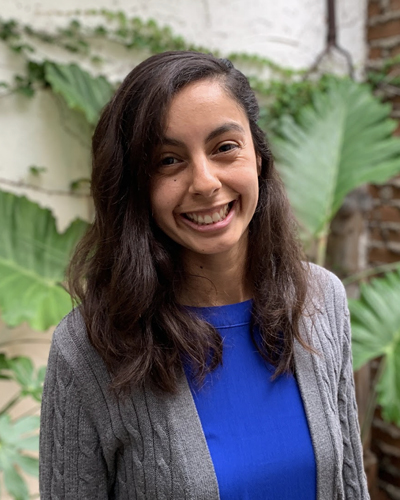
Gabrielle Elizabeth Bernal
Gabrielle Elizabeth Bernal is a University of Michigan candidate for a Ph.D. in educational studies focusing on teaching, teacher education, and mathematics education. Her research interests include questions of race, dis/ability, teaching, learning, mathematics, and social action. More specifically, her research explores the embodiment of indigenous and Latine teachers and students in the context of home, community, and school mathematics. Her work is interdisciplinary, pulling from disability justice, performance studies, and critical educational studies. As a former K-12 special education teacher and current teacher educator, her research, teaching, and service have been shaped and informed by her experiences. Gabrielle is a California State University Doctoral Incentive Program Fellow in the Department of Special Education in the College of Education at San José State University and has earned a Certificate in World Performance Studies (CWPS) during her time as a University of Michigan CWPS Fellow. She earned her bachelor of science in psychology from California Polytechnic State University-San Luis Obispo, where she was a mentor and coach with justice-involved youth. She earned her M.Ed. from Notre Dame de Namur University while mentoring and supporting teacher interns full-time. Gabrielle believes in sharing a love for mathematics and community through her teaching, service, and research. Ultimately, Gabrielle aspires to be a teacher educator in California, working closely and collaborating with community experts, focusing on special education and mathematics education, to improve the schooling and preparation experience of students and teachers of color.
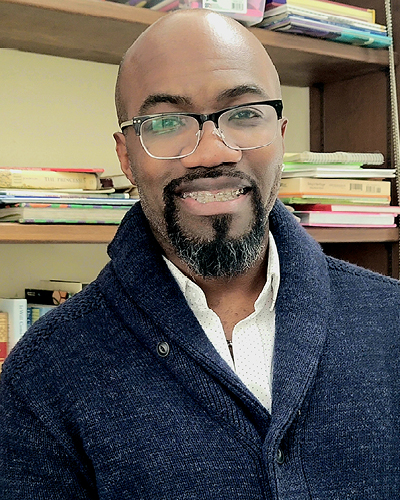
Nagash Clarke
Nagash Clarke is currently a doctoral candidate in the Engineering Education Program. His research involves white male racial allyship in STEM, where he is exploring how white males develop and enact racial allyship. This is toward the goal of increasing and sustaining minoritized persistence in STEM fields. He graduated with a bachelor’s degree in chemistry from Pace University in Pleasantville, New York. He received a master’s degree in chemical engineering from the University of Michigan. He worked for four years as a chemical engineer at Dupont Automotive Company. He left that position and started teaching chemistry at various local colleges, like Eastern Michigan University, Oakland Community College, and Washtenaw Community College. He has been heavily involved in programs geared towards minoritized student engagement in higher education, especially in STEM. For example. He was a teacher in the Detroit Area Pre-College Program; initiator and coordinator of the Pre-College STEM initiative; lead teacher in College Is My Future; and co-coordinator of the Black Male Initiative. Nagash has presented at numerous conferences such as STEMtech, Innovations, Trends, and the American Society of Engineering Educators (ASEE). He has published two conference papers at ASEE, has a publication in the International Journal of Engineering, Social Justice, and Peace, and has a paper under review in the Journal of Computing in Higher Education. Along with his dissertation research he is involved in research on mentoring of marginalized populations.
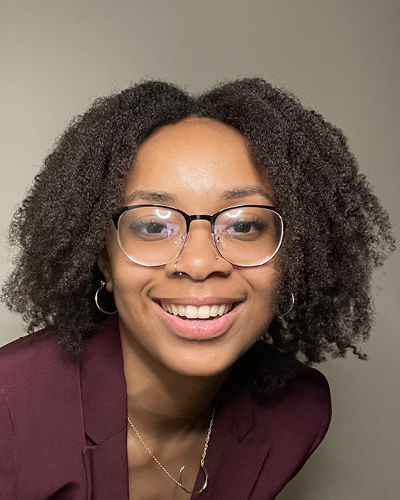
Ayza Philomena Croskey
Ayza Philomena Croskey is a candidate for the Ph.D. in chemical biology at the University of Michigan. Her research focuses on developing a novel high-throughput screening methodology to discover potential therapeutics that target a class of cellular proteins commonly dysregulated in numerous diseases. Ayza has been recognized as a Chemistry-Biology Interface Training Program Fellow and a Rackham Merit Fellow. She also retains memberships in the Sigma Xi and Phi Beta Kappa Honors Societies. She developed a proclivity for teaching while working as a Mathnasium instructor and a chemistry department tutor during her undergraduate career. Ayza graduated summa cum laude from Howard University with two bachelor of science degrees, one in chemistry and the other in human performance (concentration in sports medicine). As an HBCU alumnus, Ayza has been dedicated to supporting and cultivating a sense of belonging for underrepresented groups on and off-campus. She holds leadership positions in the organizations the U-M chapter of the National Organization for the Professional Advancement of Black Chemists and Chemical Engineers, the Graduate Society of Black Engineers and Scientists, and commUNITY, which are all designed for the advancement of underrepresented undergraduate and graduate students. Ayza also acts as a mentor for U-MYScI, a student outreach organization that guides minority 8th grade students from the metro Detroit area through scientific experiments and facilitated discussions pertaining to science careers and research. Additionally, she performs independent outreach to recruit diverse STEM students from the Washington, D.C. area. Ultimately, Ayza aspires to have a multifaceted career as a principal investigator with the intention of being actively involved in teaching, mentoring, and recruiting.
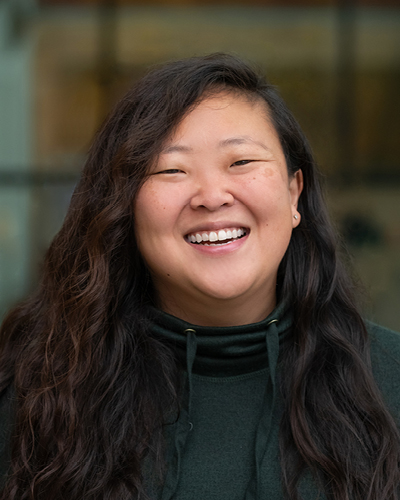
Laura-Ann Jacobs
Laura-Ann is a postdoctoral research fellow with the National Center for Institutional Diversity Stepping uP Against Racism and Xenophobia Project. Laura-Ann graduated in 2021 from the University of Michigan with a doctorate in educational studies with a specialization in literacy, language, and culture. In her time as a doctoral student, Laura-Ann co-founded Women of Color and the Academy, which is a group that brings together education scholars and practitioners to examine issues related to race, research, and representation while centering the voices and experiences of women of color. Prior to her doctoral program, Laura-Ann taught public high school English in South Carolina for six years. Laura-Ann grounds her work in the qualities of creativity, compassion, and connectedness, and her research pursues questions about how people learn about their identities, how they choose to share their stories, and how they make their mark on the world. Her research primarily focuses on preparing secondary English language arts teachers for antiracist pedagogical change for the purposes of disrupting educational inequity and creating spaces for students to explore and express themselves. Her current work centers around how people individually and collectively translate our stated commitments of justice into action for the purpose of social change.
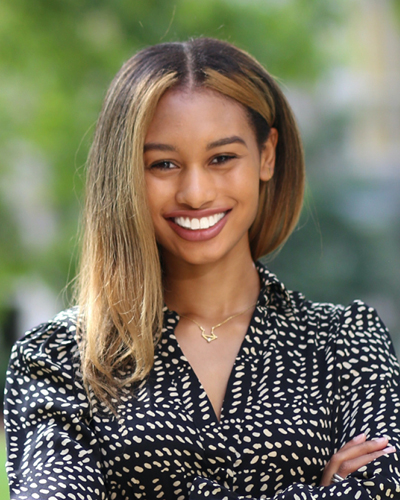
Shana D. Littleton
Shana D. Littleton is a third year Ph.D. candidate in the Clinical Pharmacy and Translational Sciences Program at the University of Michigan-Ann Arbor. Her research aims to distinguish between genetic and social factors that play a role in the racial disparity of treatment outcomes in heart failure patients. Shana received her bachelor’s degree in molecular and cellular biology from the University of Illinois at Urbana-Champaign. Since being an undergraduate student, she has served as a leader in her communities, including being vice president of the student organization Her Essence. This group worked to empower and promote the professional advancement of women. Now, at the University of Michigan, Shana is the president of Students of Color Of Rackham (SCOR). SCOR hosts a wide range of events geared towards networking, professionalism, research, activism, volunteer service, and social needs of minoritized graduate students. This group helps to create community and foster relationships among students across the different graduate and professional schools at the University of Michigan. Shana aspires to expand her work in the field of precision medicine by using the latest tools, such as genetic screenings, to advance care and address racial health disparities facing communities of color. Knowing that biomedical research often lacks representation from underserved and underrepresented communities, she hopes to use aspects of social and genetic research to implement precision health for these individuals.

Saraí Blanco Martinez
Saraí Blanco Martinez is a Ph.D. candidate in the Combined Program of Education and Psychology, and is also getting her master’s degree in social work, with a focus on community change at the University of Michigan. Prior to starting her graduate programs, she received her bachelor of arts, with a minor in social work, from the University of North Carolina at Greensboro. Saraí grounds her research in practices of cultural strengths, love, joy, and healing to answer questions about how Latinx immigrant communities keep their heritage traditions and customs alive, how immigrant origin youth learn about their identities, and how youth learn from their families about what it means to be active agents of change advocating for the rights of their communities. Her research focuses on the ethnic-racial and sociopolitical socialization processes and how these contribute to the radical healing efforts of Latinx mixed-status immigrant families and communities. Saraí’s research has been published in the American Journal of Community Psychology, Cultural Diversity and Ethnic Minority Psychology, and New Directions for Child and Adolescent Development journals. In addition to being an academic, Saraí has always been an active and strong advocate for Latinx immigrant communities through her collaborations with the Center for New North Carolinians, Mexiquenses en Michigan, and the Washtenaw Interfaith Coalition for Immigrant Rights. Ultimately, Saraí aims to be a community-oriented scholar who incorporates critical and asset-based perspectives to disrupt systems of oppression and uplift and support the healing and transformative efforts of communities and scholars of color.
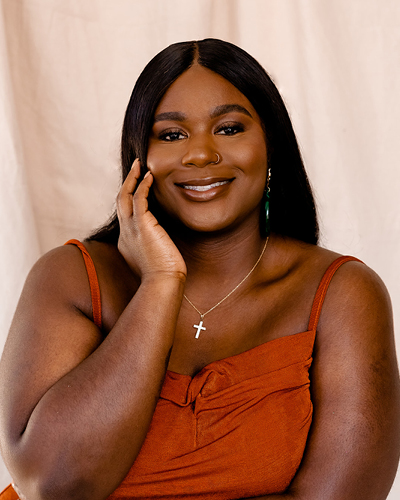
Sierra A. Nance
Sierra A. Nance defended her dissertation in March 2023 and obtained her Ph.D. in molecular and integrative physiology from the University of Michigan. Her research focuses on the role of adipose tissue macrophages in the pathogenesis of obesity-associated Type 2 Diabetes. She recently published a review article on adipose tissue macrophages: regulators of adipose tissue immunometabolism during obesity in Molecular Metabolism. Sierra is a recipient of the Benard Maas Merit Fellowship, Rackham Merit Fellowship, and the National Institutes of Health Ruth L. Kirchstein Predoctoral National Service Award. Also, she received a bachelor of science in chemistry from Winston Salem State University, where she was a recipient of the Chancellor’s Scholarship. Sierra is passionate about mentoring and increasing diversity in STEM. She has helped develop the Minority Serving Institutions (MSI) Connect initiative within Rackham Graduate School and serves as executive director of HBCU-DAP, Inc.–a non-profit organization she founded to support students from historically black colleges and universities (HBCUs) on their journey to a Ph.D. Ultimately, she aspires to continue contributing to the advancement of society by increasing diversity in clinical trials to close the health disparity gap in obesity-associated Type 2 Diabetes and honors Bouchet’s legacy by mitigating the higher education racial disparity by mentoring the next generation of Black scientists and advocating for HBCUs.

Aaron J. Neal
Aaron J. Neal (he/him) is a candidate in the clinical science Ph.D. program within the Department of Psychology at the University of Michigan-Ann Arbor. His research focuses on the impacts structural racism has on the mental health, well-being, and development of Black youth. He recently co-authored a commentary, “Measuring institutional and structural racism in research on adolescence and developmental science”, that he hopes will aid the field in improving conceptual understanding and measurement of structural racism. His research has been supported by the Ford Foundation, the Society for Research in Child Development, and the National African American Child and Family Research Center at Morehouse School of Medicine. In addition to his research endeavors, Aaron also serves as a mental health therapist at the Corner Health, a community mental health clinic that provides therapy to youth and young adults. Aaron earned a bachelor of science in biology from North Carolina Agricultural and Technical State University as well as a master of science in neuroscience and education from Teachers College Columbia University, where he was an Arthur Zankel Urban Education Fellow. In all his efforts, community is at the center. He works in collaboration with community members, patients, students, and researchers to combat structural oppression and its impacts on society. Aaron looks forward to using all of his skills to be a resource and support to communities through research, therapy, teaching, service, and advocacy.
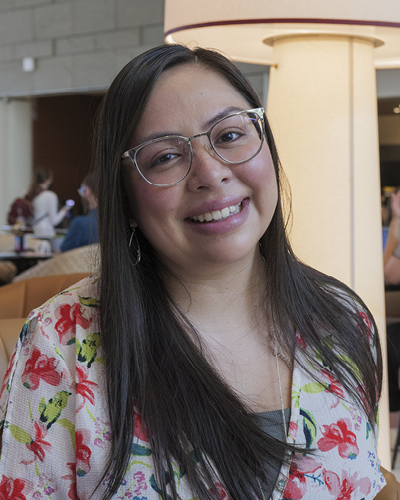
Adriana Ponce
Adriana Ponce is a Ph.D. candidate in sociology at the University of Michigan. Her feminist research–which focuses on shared parenting experiences in contemporary family forms utilizing qualitative methodology–has been awarded by the American Sociological Association. More specifically, Adriana’s dissertation centers on child custody arrangements and her most current project examines stepfamilies. This work has been supported by various interdisciplinary fellowships through the Institute for Research on Women and Gender and the Sweetland Writing Center at the University of Michigan. As a leader on campus, Adriana has taught across 12 semesters in four different disciplines and holds two equity-based teaching certificates, including Preparing Future Faculty. She is an advocate for the success of women in the academy and is a mentor to first-generation students–work that has been recognized by Rackham’s Susan Lipschutz, Margaret Ayers Host, and Anna Olcott Smith Award. Adriana’s service work on campus includes bolstering diversity, equity, and inclusion (DEI) initiatives as a staff assistant for the Rackham DEI Certificate Program where she supported other graduate students also seeking to make higher education more accessible. Adriana earned her master’s degree in sociology from the University of Michigan, Ann Arbor and bachelor’s degree in sociology from the University of California, Berkeley. Her academic accomplishments and determination as an underserved student have been highlighted by CEW+. She will begin her tenure-track assistant professor position at a liberal arts institution this summer upon defending her dissertation.
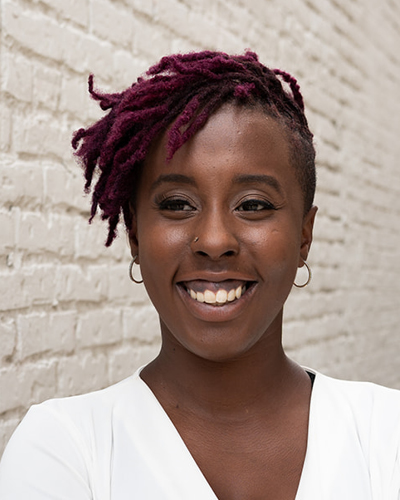
Michole Washington
Michole Washington is a candidate for the Ph.D. in educational studies with a concentration in mathematics education at the University of Michigan. Her research focuses on the design of extracurricular STEM activities for Black girls. Michole has been recognized as a Ford Foundation Fellow, STEM Success Summit Mathematician of the Year nominee, U-M Learning Levers 2021 Grand Prize recipient, a Georgia Institute of Technology 40 under 40 alumna, and a NASA Office of STEM Engagement Doctoral Intern. As well, she received a bachelor of science in mathematics from the Georgia Institute of Technology, where in 2016 she graduated as the ninth Black woman to earn a B.S. in mathematics in the university’s 131 year history. She has also earned her master of science in mathematics from the University of Michigan while working on her Ph.D.. Michole believes in making STEM spaces equitable and comfortable for those who have been historically shut out. She is the founder and lead designer for her company, STEMulation, where her teams design culturally relevant STEM experiences, like escape rooms, for Black and Brown families. Ultimately, Michole aspires to continue working toward designing and improving Black girls’ out-of-school STEM experiences in a way she never got to experience as a former Black girl.

